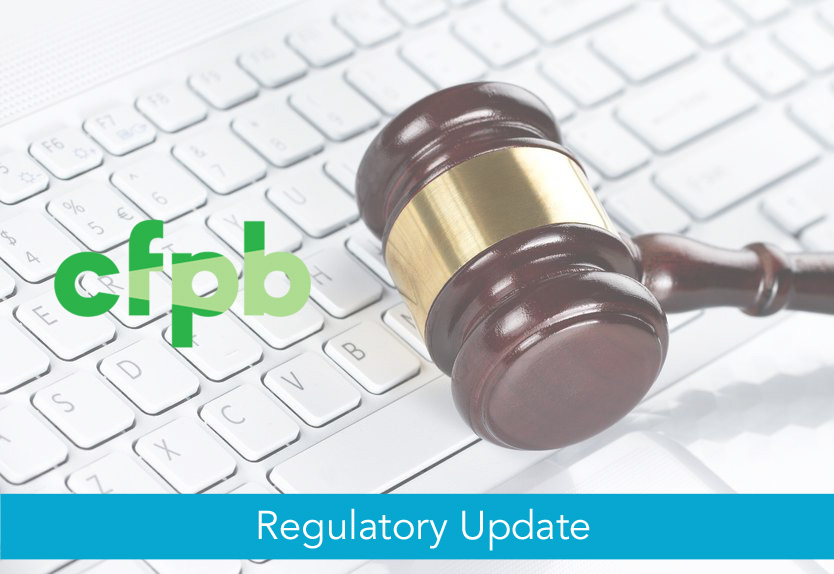
Bureau Also Seeks Public Comment on Proposal for Disclosure of Mortgage Data
The Consumer Financial Protection Bureau (CFPB) today modified Equal Credit Opportunity Act (ECOA) regulations to provide additional flexibility for mortgage lenders in the collection of consumer ethnicity and race information. These amendments will provide greater clarity for mortgage lenders regarding their obligations under the law, while promoting compliance with rules intended to ensure consumers are treated fairly. Separately, the CFPB also seeks comment on proposed policy guidance describing the Home Mortgage Disclosure Act (HMDA) data the Bureau proposes to make available to the public beginning in 2019, including modifications to protect consumers’ privacy.
“The Home Mortgage Disclosure Act helps shine a light on how consumers are treated in the nation’s largest consumer financial market,” said CFPB Director Richard Cordray. “The Consumer Bureau is committed to promoting fair lending and protecting consumer privacy, and will continue working to ensure that the rules work as intended.”
Providing flexibility and clarity for lenders
The Equal Credit Opportunity Act is a federal civil rights law that protects against discrimination in the financial marketplace. Regulation B, the CFPB’s rule implementing ECOA, includes restrictions regarding lenders’ ability to ask consumers about their race, color, religion, national origin or sex, except in certain circumstances. These circumstances include required collection of the information for some mortgage applications under Regulation B.
The changes finalized today, initially proposed in March, will provide compliance flexibility for individual mortgage lenders, and also support the broader mortgage industry’s ability to use consistent forms and compliance practices. Mortgage lenders will not be required to maintain different practices depending on their loan volume or other characteristics, allowing more lenders to adopt application forms that include expanded requests for information regarding a consumer’s ethnicity and race, including the revised Uniform Residential Loan Application.
The Bureau also finalized other amendments to Regulation B and its commentary to facilitate compliance with Regulation B’s requirements for the collection and retention of information about the ethnicity, race, and sex of applicants seeking certain types of mortgage loans.
The final rule on ECOA issued today is available at: https://files.consumerfinance.gov/f/documents/201709_cfpb_final-rule_regulation-b.pdf
Promoting transparency and protecting privacy
The Home Mortgage Disclosure Act requires many lenders to report and disclose to the public certain information about their mortgage lending activities. HMDA data is used for a variety of purposes, including: to monitor whether financial institutions are serving the housing needs of their communities, to assist in distributing public-sector investment to attract private investment to areas where it is needed, and to identify possible discriminatory lending patterns.
In 2015 the CFPB finalized changes to Regulation C, the CFPB’s rule implementing HMDA, updating the quality and type of data that financial institutions report. Financial institutions will begin collecting the new information in 2018, which includes data fields such as the property value, the interest rate of the loan, and the applicant’s debt-to-income ratio.
Public disclosure of mortgage data is central to the achievement of HMDA’s goals. The Bureau has considered whether and how HMDA data should be modified prior to its disclosure to the public, in order to protect applicant and borrower privacy while also fulfilling HMDA’s public disclosure purposes. The proposed policy guidance issued today describes the loan-level HMDA data that the Bureau proposes to make available to the public beginning in 2019. While the Bureau proposes to make the bulk of this information public, it also proposes important modifications to the data to protect consumers’ privacy. For instance, the Bureau proposes to exclude certain data fields from what is shared publicly, including the property address and applicant’s credit score. The Bureau also proposes to disclose certain information with reduced precision, for instance by disclosing an applicant’s age as a range rather than a specific number.
The Bureau is seeking public comment on the proposal issued today, and will carefully consider any feedback received through the comment process before announcing the final policy guidance. The public comment period will be open for 60 days following publication in the Federal Register.
The proposed policy guidance issued today is available at: https://files.consumerfinance.gov/f/documents/201709_cfpb_hmda-disclosure-policy-guidance.pdf